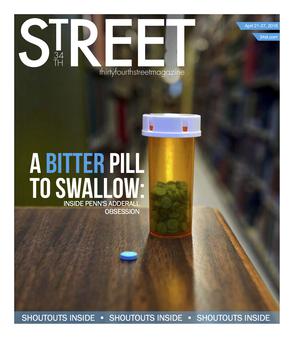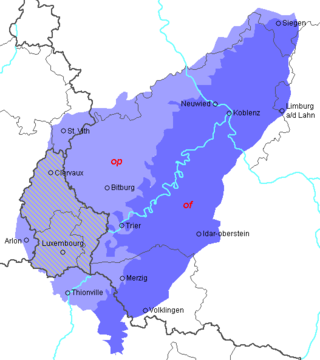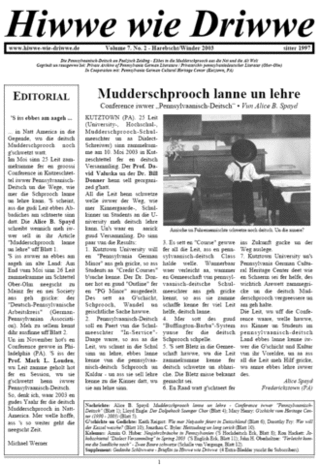
The Palatinate, or the Rhenish Palatinate (Rheinpfalz), is a historical region of Germany. Prior to World War II, it was also referred to as Rhenish Bavaria; as a state of the Holy Roman Empire, it was known as the Lower Palatinate (Unterpfalz), which designated only the western part of the Electorate of the Palatinate, as opposed to the Upper Palatinate (Oberpfalz). It occupies roughly the southernmost quarter of the German federal state of Rhineland-Palatinate (Rheinland-Pfalz), covering an area of 2,105 square miles (5,450 km2) with about 1.4 million inhabitants. Its residents are known as Palatines (Pfälzer).

The Pennsylvania Dutch, also known as Pennsylvania Germans, are an ethnic group in Pennsylvania and other American states. They descend from Germans who settled in Pennsylvania during the 17th, 18th and 19th centuries, primarily from the Palatinate, and other German-speaking areas, including Baden-Württemberg, Hesse, Saxony, and Rhineland in Germany, the Netherlands, Switzerland, and France's Alsace-Lorraine region.

Pennsylvania Dutch, sometimes referred to as Pennsylvania German, is a variety of Palatine German, also known as Palatinate German or Palatine Dutch, spoken by the Pennsylvania Dutch, including the Old Order Amish, Old Order Mennonites, Fancy Dutch, and other descendants of German immigrants in the United States and Canada. There are approximately 300,000 native speakers of Pennsylvania Dutch in the United States and Canada.

Over 50 million Americans claim German ancestry, which makes them the largest single claimed ancestry group in the United States. Around 1.06 million people in the United States speak the German language at home. It is the second most spoken language in North Dakota and is the third most spoken language in 16 other states.

The Pennsylvania Dutch Country, also called Pennsylvania Dutchland, is a Pennsylvania Dutch cultural region spanning the Delaware Valley and South Central and Northeastern regions of Pennsylvania.

The Daily Pennsylvanian, Inc. is the independent student media organization of the University of Pennsylvania. The DP, Inc. publishes The Daily Pennsylvanian newspaper, 34th Street magazine, and Under the Button, as well as five newsletters: The Daily Pennsylvanian, The Weekly Roundup, The Toast, Quaker Nation, and Penn, Unbuttoned.

Frankenthal (Pfalz) (Palatine German: Frongedahl) is a town in southwestern Germany, in the state of Rhineland-Palatinate.

Moselle Franconian is a West Central German language, part of the Central Franconian languages area, that includes Luxembourgish. It is spoken in the southern Rhineland and along the course of the Moselle, in the Siegerland of North Rhine-Westphalia, throughout western Rhineland-Palatinate and Saarland, Luxembourg, the south of the German-speaking Community of Belgium and in the neighboring French département of Moselle. The Transylvanian Saxon dialect spoken in the Transylvania region of Romania is derived from this dialect as a result of the emigration of numerous "Transylvanian Saxons" between 1100 and 1300, primarily from areas in which the Moselle Franconian dialect was then spoken. Another variety of Moselle Franconian, the Hunsrik, is spoken in some rural areas of southern Brazil, brought by 19th century immigrants from the Hunsrück region in modern Germany.

The German-Pennsylvanian Association is an organization founded in 2003 in the Rheinhessen area of Ober-Olm in Germany, and dedicated to cultural exchange and research involving the Pennsylvania Dutch language and people. The registered seat of the organization is in the Rhineland-Palatinate capital of Mainz.

Palatines are the citizens and princes of the Palatinates of the Holy Roman Empire, controlled directly by the Holy Roman Emperor. After the fall of the Holy Roman Empire in 1806, the Palatine nationality came to refer specifically to people of the Rhenish Palatinate, known simply as "the Palatinate".

Ebertsheim is an Ortsgemeinde – a municipality belonging to a Verbandsgemeinde, a kind of collective municipality – in the Bad Dürkheim district in Rhineland-Palatinate, Germany.

Ober-Olm is an Ortsgemeinde – a municipality belonging to a Verbandsgemeinde, a kind of collective municipality – in the Mainz-Bingen district in Rhineland-Palatinate, Germany.

A Fersommling is a Pennsylvania Dutch social event in which food is served, speeches are made, and one or more g'spiel, which are plays or skits, are performed for entertainment. "A high degree of theatricality and ceremony is involved, especially in the groundhog lodges: pledging loyalty to the lodge and the groundhog, listening to a weather report, singing patriotic songs in Deitsch, and ending every meeting by asking God to allow them to keep their way of life and their merriment." as described by William W. Donner.

Hiwwe wie Driwwe, which means "Hither like thither", is the title of the only existing Pennsylvania German-language newspaper.
Michael Werner is a publisher of Pennsylvania German publications and writer of Pennsylvania German articles, prose and poetry. He is the founder and publisher of the only existing Pennsylvania German newspaper, Hiwwe wie Driwwe.
The Pennsylvania German Society is a non-profit, educational organization dedicated to studying the Pennsylvania German people and their 330-year history in the United States and Canada. The society works to preserve and promote the history, culture, religion, and dialect of the Pennsylvania Germans, also commonly known as the Pennsylvania Dutch. It was founded in 1891 and was a founding member of the Pennsylvania Federation of Historical Societies.
German American journalism includes newspapers, magazines, and the newer media, with coverage of the reporters, editors, commentators, producers and other key personnel. The German Americans were thoroughly assimilated by the 1920s, and German language publications one by one closed down for lack of readers.
Anabaptists and Jews have had interactions for several centuries, since the origins of Anabaptism in the Radical Reformation in early modern Europe. Due to the insularity of many Anabaptist and Jewish communities, Anabaptist–Jewish relations have historically been limited but there are notable examples of interactions between Anabaptists and Jews. Due to some similarities in dress, culture, and language, Amish and Mennonite communities in particular have often been compared and contrasted to Haredi and Hasidic Jewish communities.

Sasa Hanten-Schmidt is a German lawyer, publicist and court expert on contemporary visual art. She is head of Angela Glajcar's studio and is responsible for her catalog raisonné. She runs the law firm Hanten-Schmidt















